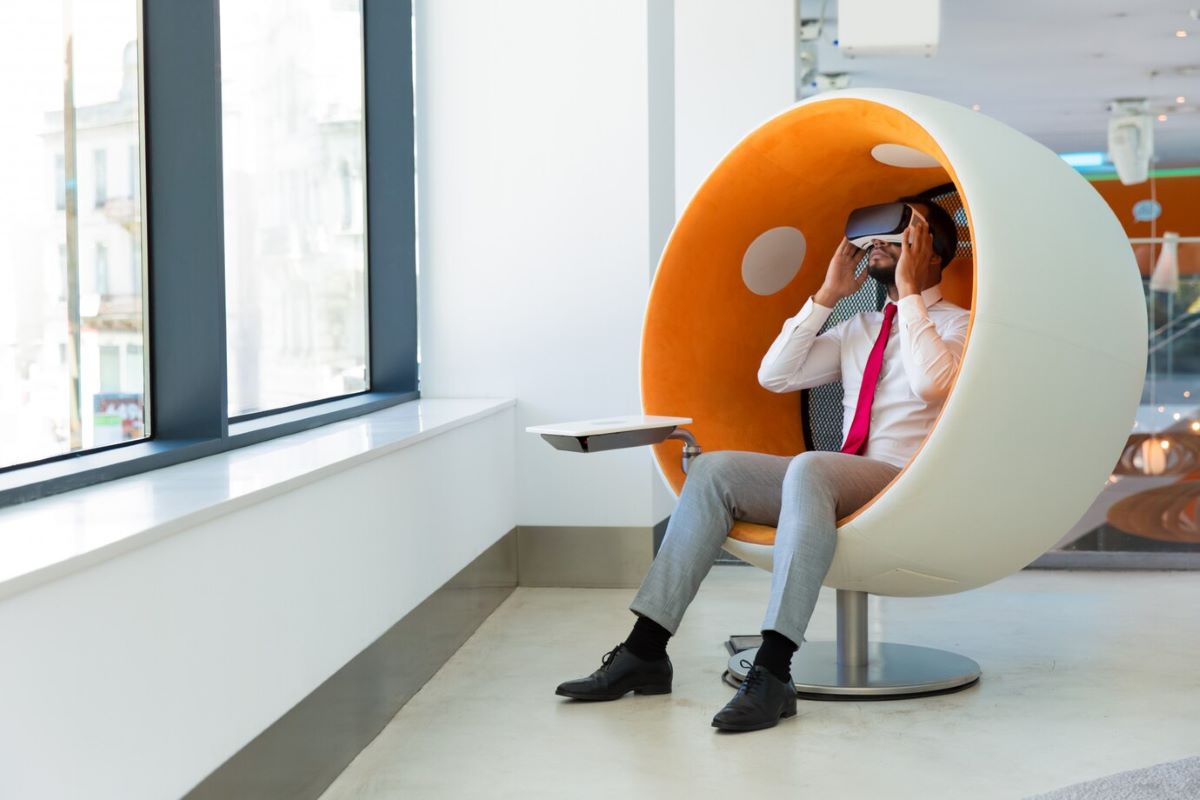The 21st century continues to evolve around us. The personal computer is now as common in the work environment as a telephone. Many of today’s jobs didn’t exist a decade ago, and things are still changing rapidly when it comes to what constitutes a work environment. As we move forward into the future this evolution will continue, giving rise to job descriptions and skill requirements we aren’t even aware of yet. Imagine trying to explain the job of social media manager to an individual in the 1990s or the skillset of a machine learning engineer to someone a decade ago.
Adapt
What we are witnessing is nothing new, really. Over the course of human history, the tools we use to succeed have evolved as rapidly as the work environment itself – from the Stone Age to the Bronze Age to the Industrial Revolution to the Space Race to the technological (and social media) explosion that now encompasses our daily lives.
Desk jobs are quickly becoming a thing of the past. Today, many people enjoy the freedom of working from home. As the lines between home and office blur, productivity in the workplace – wherever and whenever that workplace happens to be – increases. Amid growing concerns about striking the healthiest balance between our work and our lives, studies have found that employees consider flexible work hours an even greater motivator to productivity than financial compensation.
Bring Your Own Revolution
Whether you refer to it as BYOD (Bring Your Own Device), BYOT (Bring Your Own Technology), BYOP (Bring Your Own Phone), or BYOPC (Bring Your Own Personal Computer), the message is the same: the flexibility of so-called “IT consumerization” is a fact in the modern business world. And employees want it.
Morale is, and has long been, one of the key elements of productivity. By instituting a BYOD policy, your business not only shows your employees – in a very tangible way – that they are important to you, it also gives them a level of freedom they might not otherwise experience in a more rigid and traditional workplace.
Research by UK-based information and communications technology infrastructure and service provider Logicalis found that approximately 75% of employees in high-growth markets such as Brazil and Russia, as well as almost half of workers in developed markets (44%), use their own technology at work.
BYOD policies are already in place in many schools in Canada and elsewhere, preparing the next generation for lives in the modern-day business world. Is your business prepared?
An Ever-Changing Landscape
The traditional model of Capitalism was to make as much money as possible at all costs. Likewise, employees today want to have as much time as possible without the quality of their work suffering. From this like-minded work, “Conscious Capitalism” was born.
Investopedia describes Conscious Capitalism as a philosophy that businesses should serve all principal stakeholders. It doesn’t minimize profit-seeking but encourages the assimilation of all common interests into the company’s business plan.
Many big companies have taken this route, including Whole Foods Market, 3M, Amazon, Google, Costco, IBM, Adobe Systems, MasterCard, Starbucks, UPS, Walt Disney, BMW, IKEA, Honda, and Toyota.
Flexible work hours and embracing employee input are two mainstays that have helped make these companies as successful as they are. Viewing those within the company as stakeholders, and not concentrating exclusively on shareholders, has created an environment where employees can flourish; they actually want to work there, rather than seeing their jobs as simply a way to pay the bills. This not only helps increase employee retention and reliability, but it also makes your company much more attractive to new hires.
Automation, Machine Learning, and Artificial Intelligence
Though it may seem like the stuff of science fiction, AI applications are all around us. A recent CNBC report predicted that lawyers could be the next occupation replaced by artificial intelligence.
Work that used to take paralegals or junior attorneys days to perform can now be done in mere minutes. AI can mine documents for evidence, perform contract review, as well as do legal research and due diligence before a corporate acquisition – all while simultaneously learning.
Some of the many other sectors where AI is making an impact:
- Advertising – Billboards utilizing facial tracking technology and genetics-based algorithms read the potential consumer’s facial expressions in real time and tailors the ad to fit that emotion
- Medicine – Illnesses can be accurately predicted through the use of algorithms that compare the patient’s records to millions of others
- Border security – Facial recognition technology now enables border patrol agents to better succeed at their job
An added benefit to employers, computers don’t get sick, tired, hungry, need vacations, or sleep in. Our reliance on automation has changed, and will continue to change, both how and when we work. The idea of going to a 9-to-5 job from Monday to Friday may soon become a foggy memory as technology continues to change the workplace.
The Future is What You Make It
“You’re only as strong as your weakest link” is a common expression. By looking to and embracing the future of work, as well as constantly striving to discover new ideas and ideals, you possess the capability to strengthen each link in your organizational chain.
Whether it’s flexible work hours, the option to work from home, a BYOD policy, or simply ensuring that successes and hard work are highlighted and celebrated, your business can benefit from embracing change and staying nimble in the modern work environment.
Numerous studies have shown that a happy employee is a productive employee, and while it may seem like a cliché, it’s a truism that can lead your business towards success.
Peter Campbell | Contributing Writer




















